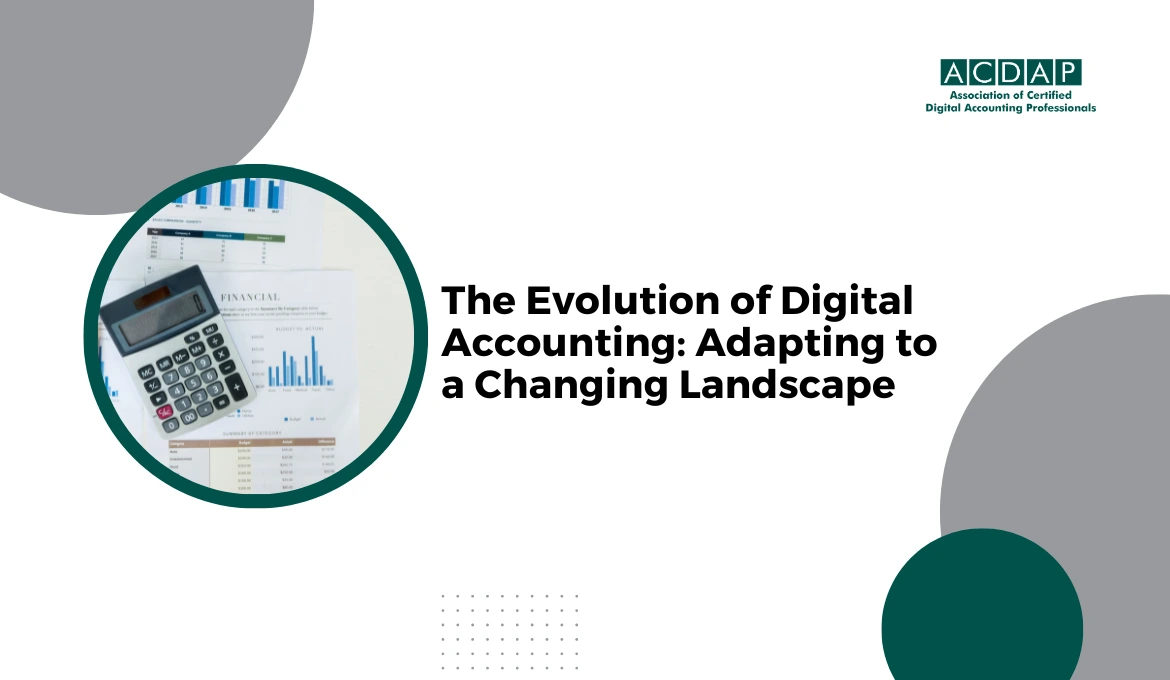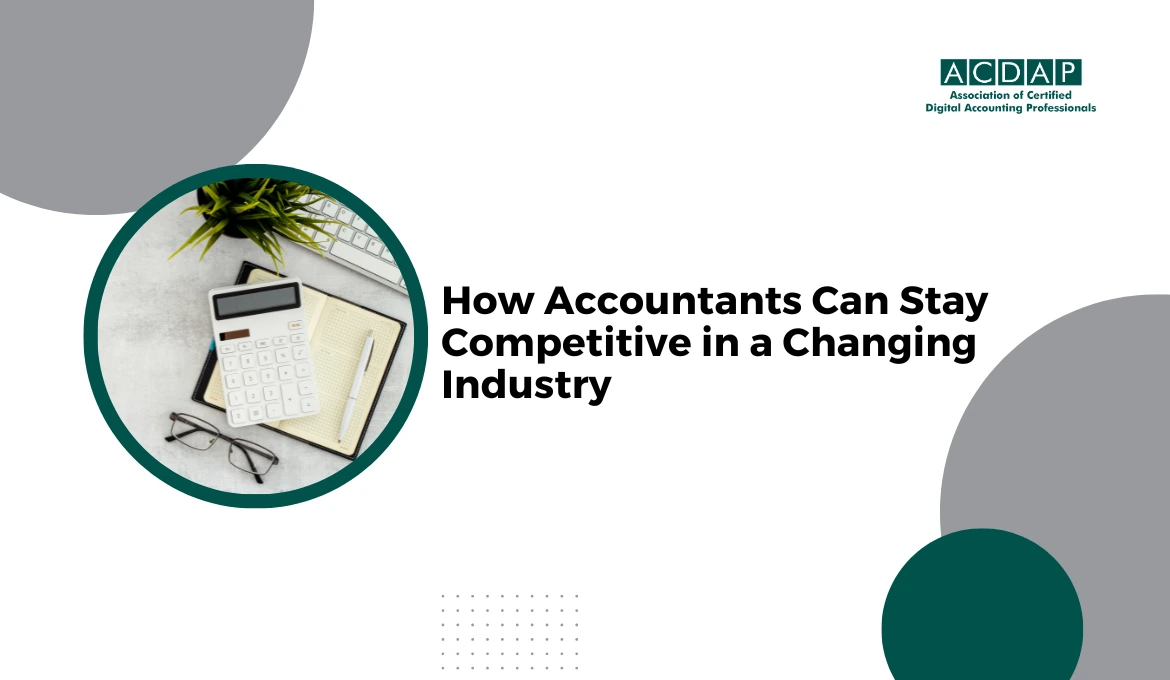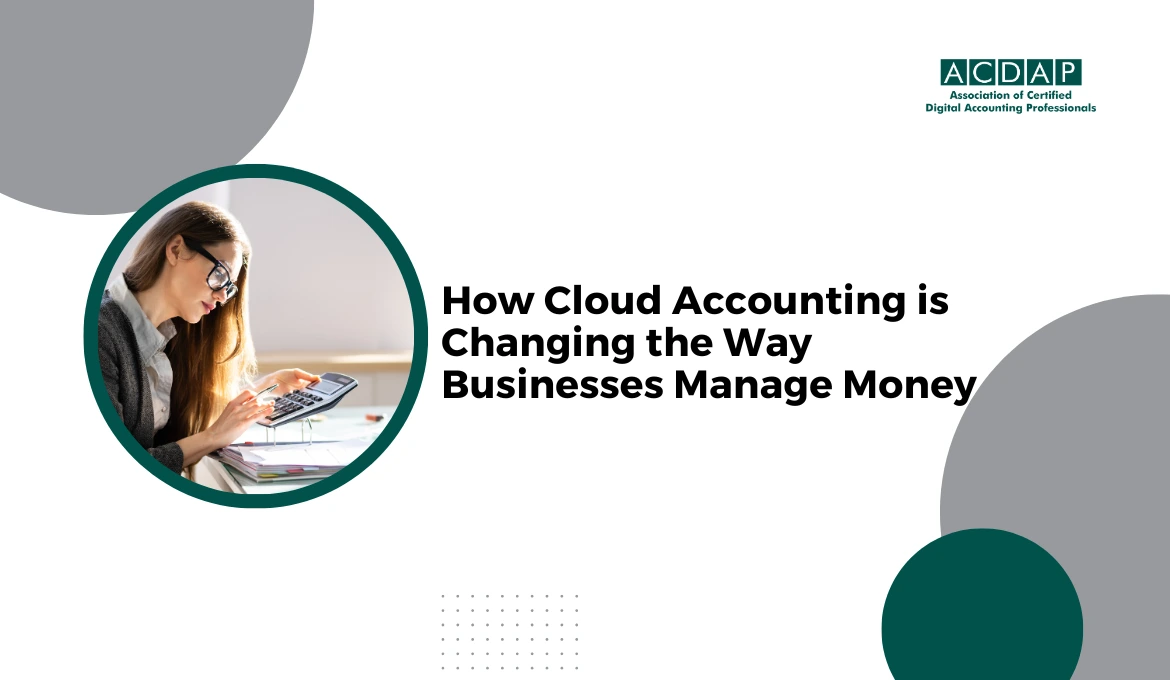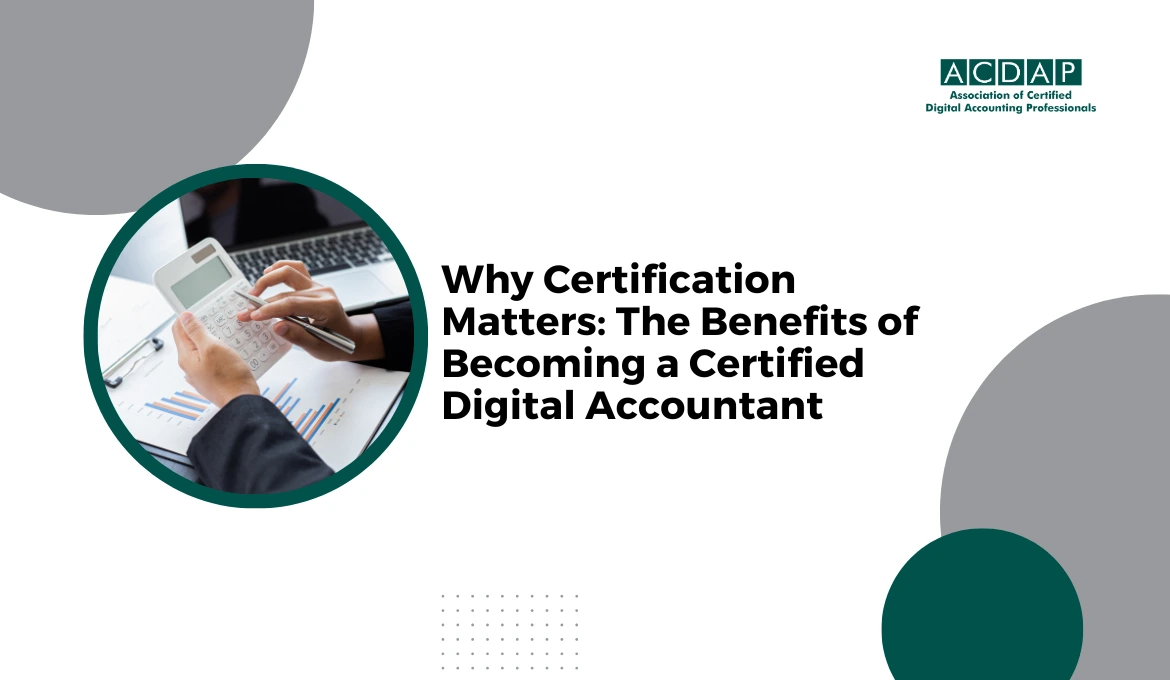Digital accounting has changed the way businesses do their books in a matter of years. With technology continually evolving, the accounting environment continues to change, providing new opportunities and tools for accountants. Over the last few years, digital accounting has become a must-have for all businesses. Let's see how digital accounting has evolved and how professionals can adjust to this evolving environment.
The Emergence of Accounting Software
Earlier, accountants used to rely on manual entries and paper books. However, after the advent of accounting software, the profession has undergone a complete transformation. With software like QuickBooks, Xero, and Sage, accounting functions like bookkeeping, invoicing, and financial reporting are now automated. These software packages have accelerated accounting, made it more accurate, and simplified its management. Now, accountants need to know different software tools to stay in the business.
Automation of Accounting Functions
The greatest shift in accounting in the digital age has been the increased automation. A number of standard accounting functions, including data input, invoice handling, and payroll, can be automated. This saves time, and it minimizes the chance of human error. Automation has enabled accountants to concentrate on higher-level activities like financial analysis and business planning. Adjusting to automation is important for accountants in order to maximize efficiency and contribute more value to their employers or clients.
Cloud Accounting and Real-Time Access
Cloud technology has changed how accountants access and deal with financial information. Cloud accounting provides a means to store company financial records online, allowing real-time access anywhere globally. This has facilitated collaborative work between accountants, clients, and team members. Real-time access provides accountants with the ability to offer more timely advice and make faster decisions. With more businesses turning to cloud-based solutions, accountants need to learn how to effectively utilize cloud accounting tools.
The Role of Artificial Intelligence (AI)
Artificial intelligence (AI) is increasingly becoming part of the accounting profession. AI has the ability to scan large volumes of financial data, identify patterns, and give insights quicker than conventional methods. For instance, AI can assist in detecting fraud, forecasting cash flow, and suggesting cost-cutting measures. As technology advances, accountants will have to get used to working with AI tools in their daily activities. Being aware of AI can make accountants stand out in an increasingly digital era.
The Increased Need for Cybersecurity
As the world shifts to digital accounting, cybersecurity becomes a top priority. With greater financial data held online, businesses are more at risk of being hacked and suffering from data breaches. Accountants must be conscious of the new cybersecurity standards in order to guard sensitive financial information. This involves the implementation of strong passwords, cloud system security, and being current on security measures. As digital accounting becomes more mainstream, accountants need to know they have what it takes to protect information and keep clients on board.
Being Flexible with Altered Regulations
As the global world of digital accounting evolves, so do regulations that oversee the practice. Governments from all over the world are implementing new tax regulations and compliance measures to keep up with new technology. Accountants need to keep up with these developments and modify their practices to suit them. This might mean attending seminar programs, studying industry reports, or collaborating with legal experts to remain compliant. Being able to cope with evolving regulations is very important to ensure a healthy and resilient accounting practice in today's technology-driven world.
Upskilling Towards the Accountancy Future
The future of accounting will be technology-driven, so accountants will need to keep upskilling to be useful. Adopting new software, tools, and methodologies will be a prerequisite for professional development. Workshops, webinars, and courses can be used by accountants to hone their expertise in fields like cloud accounting, AI, and cybersecurity. Keeping abreast of business trends and constantly enhancing their knowledge will make accountants future-ready.
The Last Word
Digital accounting has brought numerous changes with it to the profession. From the emergence of accounting software to the increasing role of AI and cybersecurity, accountants need to keep pace with the changing times. With open minds embracing new technologies, staying aware of regulatory updates, and reskilling on a regular basis, accountants can stay ahead in a more digital world. Flexibility is the key to success in the contemporary accounting profession.


























